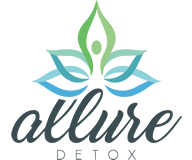Addiction Treatment Therapies: All You Need to Know
Whether it’s a problem with drinking, opioids, or any other substance, addiction affects thousands of Americans and their families every year.
The problem is that only a small percentage of people agree to receive treatment. Sadly, a fatal drug overdose occurs approximately every three hours in cities like New York.
The entire nation is facing rising levels of addiction and drug abuse, but it’s never too late to seek help!
If you or a member of your family suffers from addiction, seeking professional help is necessary. In this article, we’ll tell you everything you need to know about addiction treatment therapies.
Let’s dive into the details right away.
Table of Contents
Understanding Addiction
The definition of addiction is not having control over doing, using, or taking something. So, it’s not just about physical addictions.
Many people are addicted to other things, such as gambling, shopping, and even playing games. These are called behavioral addictions.
Generally, any kind of addiction can be harmful to one’s health. It can also lead to many problems in one’s work, relationships, and daily life, depending on the type of addiction.
Addiction levels in the country have been rising. Approximately 21 million Americans suffer from at least one type of addiction or abuse, and the problem is that only 10% of them seek therapy.
That said, let’s check out the two types of addiction.
Physical Addictions
Physical or chemical addictions can be tricky. It involves ingesting or putting certain substances in one’s body in any way.
The problem with these addictions is that the cravings are far more intense than the behavioral ones. In addition, when a person stops taking the substance, they’ll start experiencing withdrawal symptoms, which can be tough.
Here are some of the most common addictive substances in the country:
- Opioids, including morphine and oxycodone
- Alcohol
- Cannabis
- Cocaine
- Methamphetamine
Behavioral Addictions
Behavioral addictions, as the name suggests, are about losing control of one’s actions to engage in certain behaviors. These behaviors typically cause a brief euphoria for the person doing them.
As of 2023, there are some disagreements around behavioral addictions. That’s because it’s hard to tell the exact point where a certain behavior turns into an addiction.
For example, gambling and Internet Gaming Disorder (IGD) are types of addictions that the DSM-5 recognizes.
Other common behavioral addictions include the following:
- Shopping addiction
- Food addiction
- Work addiction
- Exercise addiction

Traditional Approaches to Addiction Treatment
So, how does the treatment work? Well, it mainly depends on the type of drug and the degree of intensity.
Here are some traditional treatment approaches:
1. Detoxification
The first step in treatment is usually detoxification. A detox plan is an essential part of any case with substance dependence.
Typically, the program focuses on relieving withdrawal symptoms and getting rid of the substance in the user’s system.
In some cases, we use medications to help stabilize the patient and overcome withdrawal symptoms.
After becoming drug-free, the patient will receive a plan for ongoing treatment. Generally, detoxification can last anywhere from a few days to weeks, depending on the severity of the case.
2. Medication-Assisted Treatment (MAT)
Medication-Assisted Treatment (MAT) is a therapy approach that uses a combination of medications, counseling, and behavioral therapy.
The medications help relieve withdrawal symptoms and ease cravings. Counseling and behavioral therapy help users recover from addiction and have a fresh start.
MAT has proven to be effective, especially in opioid use disorder cases. It has also shown incredible results in helping people sustain recovery.
3. Behavioral Therapies
Behavioral therapy is a term that describes a wide range of methods we use to treat mental health disorders. The idea behind this approach is that behaviors are learned, so they can be changed.
This type of therapy has shown great results for treating depression, anxiety, and eating disorders. However, it also works exceptionally well in substance use disorder cases.
Contemporary Addiction Treatment Therapies
Many modern treatment approaches have proven to be as effective as traditional ones. Let’s check out some contemporary addiction treatment therapies.
1. Cognitive Behavioral Therapy (CBT)
Cognitive Behavioral Therapy (CBT) is a psychological treatment method that has shown positive results with depression, anxiety, and addiction.
Various studies suggest that CBT can help people improve their quality of life and change their way of thinking.
The technique helps users identify and change destructive thought patterns that negatively impact their behaviors.
So, CBT combines cognitive therapy with behavior therapy to get the best results. More importantly, this technique teaches users effective communication skills, which can help them sustain their sobriety and seek help when needed. In addition, CBT helps users dismiss negative thoughts and false beliefs that lead to substance abuse.
2. Dialectical Behavior Therapy (DBT)
Dialectical Behavior Therapy (DBT) is based on CBT, but it’s more focused on helping people who feel emotions intensely.
The main goal of DBT is to teach users how to develop healthy ways to cope with stress and regulate their emotions. Initially, it was aimed at helping people with borderline personality disorder, but it has proven effective with drug abusers.
DBT can also help people who are exhibiting self-destructive behaviors, such as substance use disorders.
Generally, dialectical behavior therapy consists of three key components:
- Individual Therapy: One-on-one sessions with personalized plans to help users apply DBT skills to real-life challenges.
- Group Therapy: Individuals learn about DBT skills in a group setting.
- Phone Coaching: Patients can communicate with their therapist between sessions to receive guidance and support when required.
3. Motivational Interviewing (MI)
Motivational Interviewing (MI) is a type of counseling that helps people resolve insecurities and ambivalent feelings. In turn, this can help them find the internal motivation they need to change negative behaviors, such as substance abuse.
The main goal of MI is to help people find their own motivations. These internal motivations tend to be stronger and more convincing, which leads to impressive results.
In most cases, lack of motivation is one of the hardest things users face during their sobriety journey.
That’s why it’s a good technique for users struggling to make changes in their lives, like stopping substance abuse.
Additionally, MI strengthens one’s commitment to a particular goal, which in this case is sobriety.
Holistic and Alternative Therapies
Holistic and alternative therapies are non-medical approaches to helping people suffering from substance abuse. There are many types of holistic and alternative addiction treatments, and each one aims to help with a certain problem a user may struggle with.
However, we typically use this type of therapy during recovery along with other types of psychological or medical programs.
That said, here are some alternative therapy methods:
1. Mindfulness Meditation
Mindfulness meditation is a powerful technique that allows you to maintain clarity under pressure. That can be helpful for anyone suffering from substance abuse.
It can also help reduce anxiety and depression, which are associated with addiction. On top of that, it’s a healthy habit that can help individuals cope with their negative thoughts.
In mindfulness meditation, you’ll learn to focus on your breathing and sensations in your body. The practice also involves guided imagery and different ways to relax the body and mind.
2. Acupuncture and Massage
Acupuncture and massage are among the holistic therapies that relieve stress and provide emotional relaxation.
While they work in completely different ways, they both evoke a better sense of well-being. For example, acupuncture is a holistic therapy that involves stimulating certain points in your body using ultra-thin needles. Don’t fret! It doesn’t hurt at all.
In Chinese traditional medicine, these needles are thought to help balance the flow of energy throughout the body.
Similarly, massage therapy can help with the detox process, both mentally and physically. That’s because massage can improve blood circulation, which helps your body remove toxins faster.
It also promotes relaxation and reduces pain, agitation, and anxiety, which are often associated with withdrawal symptoms.
3. Yoga
Yoga involves a set of disciplines that can help improve an individual’s overall sense of well-being.
Holistic yoga therapy has been proven to be effective for users suffering from substance use disorders.
Aside from its physical benefits, yoga can lower stress levels and help you have greater peace of mind. It can also help individuals cope with their negative emotions and get in tune with their new sober life.
Frequently Asked Questions
What are the 12-step programs?
Does rehab work for everyone?
Final Thoughts
There are many types of addiction treatment therapies out there. Detoxification, medication-assisted treatment, and behavioral therapy are among the traditional methods.
On the other hand, cognitive behavioral therapy, dialectical behavior therapy, and motivational interviewing are among the contemporary approaches.
If you, one of your family members, or a loved one is struggling with a substance use disorder, you should always seek professional help.
No matter what type of addiction they have, they’ll receive a personalized treatment program that will help them recover and become sober.
Related Articles
- Individual Counseling for Addiction Treatment
- Yoga for Addiction Treatment
- Physical Therapy for Addiction
- Massage Therapy
- Chiropractic for Addiction
- Acupuncture for Addiction
- Cognitive Behavioral Therapy (CBT)
- Dialectical Behavior Therapy (DBT)
- Holistic Addiction Treatment
Published on: 2020-01-08
Updated on: 2023-08-16


